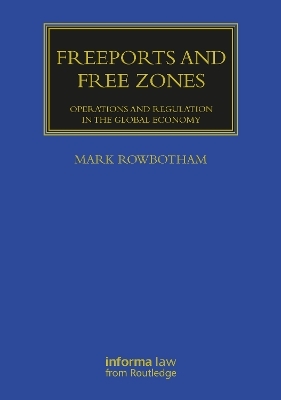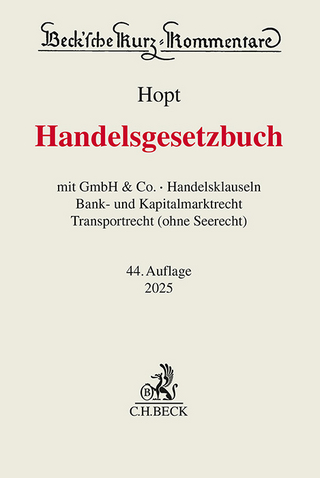
Freeports and Free Zones
Informa Law (Verlag)
978-1-032-14029-2 (ISBN)
This book explains the definition, concepts, practices and procedures of Free Zone operations; how they are created, how they operate, and their benefits to the global and national economy.
Readers will be able to understand why Free Zones exist, their role in the development and maintenance of international trade, and how they contribute to national and global economic development and wellbeing, especially in developing nations. The author explains the processes in the establishment of Free Zones, and how government legislation and initiatives assist in this process. The book comprehensively but accessibly covers the topics of Freeports, Free Zones, Export Processing Zones (EPZs) and Special Economoic Zones (SEZs), as well as issues such as Customs requirements, Free Zone law and government initiatives, including the new UK Freeport initiative. It analyses the role of such Zones in global economic development and considers the challenges and issues related to Free Zone development and operation, including security and potential crime. The book also provides a series of case studies into selected global examples of Free Zones, EPZs and SEZs.
Freeports and Free Zones will have a broad readership, being of interest to global economic, fiscal and government institutions, policymakers, legal practitioners and advisers, economic and business advisers, port and airport authorities and major multinational enterprises. It will be especially relevant to the food, automotive, defence, manufacturing, logistics, Fast Moving Consumer Goods (FMCG), pharmaceutical, aviation and maritime industries.
Mark Rowbotham is an international consultant, trainer and writer in Customs and VAT Compliance and Risk issues, as well as other areas including International Trade, Excise, Export Controls, Oil & Gas Offshore and Marine issues.
Part 1 1. Introduction and Background 2. Free Zone History and Overview 3. Overall Definition and Purpose 4. Fiscal and Legal Status 5. Specific Zone Definitions, Location and Comparisons 6. Customs Clearance 7. Rules of Origin and Freeports 8. Business Clustering and Economic Development 9. Tax Incentives, Duty Deferral Savings and the Supply Chain 10. Financial and Service Free Zones 11. WEPZA 12. Free Zone Security and Risk 13. The Political Perspective 14. Sustainability and the Future 15. Challenges and Secrets to Success 16. The UK Perspective 17. Conclusions Part 2: Specific Global Free Zone Examples 1. North America 2. Latin America 3. Middle East and North America (MENA) 4. European Union 5. Russia 6. Asean (South-East Asia) 7. China 8. UK Freeport Initiatives Appendix 1. UK Free Zones: Proposed Guidelines Appendix 2. UK Freeport Operations Applicant Questionnaire
| Erscheinungsdatum | 07.10.2021 |
|---|---|
| Reihe/Serie | Maritime and Transport Law Library |
| Zusatzinfo | 15 Tables, black and white; 3 Line drawings, black and white; 3 Illustrations, black and white |
| Sprache | englisch |
| Maße | 174 x 246 mm |
| Gewicht | 570 g |
| Themenwelt | Recht / Steuern ► Allgemeines / Lexika |
| Recht / Steuern ► EU / Internationales Recht | |
| Recht / Steuern ► Steuern / Steuerrecht | |
| Recht / Steuern ► Wirtschaftsrecht ► Handelsrecht | |
| Sozialwissenschaften ► Politik / Verwaltung ► Staat / Verwaltung | |
| Wirtschaft ► Volkswirtschaftslehre ► Makroökonomie | |
| Wirtschaft ► Volkswirtschaftslehre ► Wirtschaftspolitik | |
| ISBN-10 | 1-032-14029-1 / 1032140291 |
| ISBN-13 | 978-1-032-14029-2 / 9781032140292 |
| Zustand | Neuware |
| Informationen gemäß Produktsicherheitsverordnung (GPSR) | |
| Haben Sie eine Frage zum Produkt? |
aus dem Bereich


